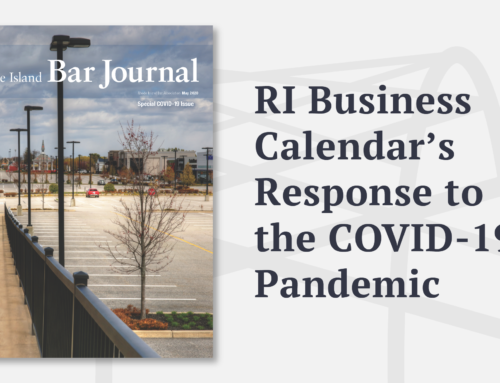The Rhode Island Superior Court has recently ruled that a residential home buyer’s acceptance of the warranty deed waived all contractual claims the buyer had against the seller with respect to misrepresentations made by the seller in the residential Purchase and Sales Agreement and Rhode Island Real Estate Disclosure Form.
Suit was filed on behalf of the buyer against the seller of residential real estate. The buyer alleged that the seller misrepresented conditions of the roof on the structure, and filed a four count complaint alleging breach of contract, breach of warranty, and negligent and/or intentional misrepresentation.
The trial justice ruled that the counts for breach of contract and breach of warranty were waived by the buyer’s acceptance of the warranty deed. In so ruling, the trial justice observed that the Rhode Island Supreme Court “is satisfied that, pursuant to the doctrine of merger by deed, any claims arising from any verbal or written contract between the parties for the purchase of the home are extinguished by acceptance of a warranty deed. See Lizotte v. Mitchell, 771 A.2d 884, 887 (R.I. 2001). The trial justice further ruled that a breach of warranty claim arising out of failure of the seller to disclose defects with the property on the Rhode Island Real Estate Disclosure Form is not an action arising out of contract principles. He noted that this disclosure form is compulsory by statute, and is therefore not to be considered a “bargained for exchange,” a breach of which would give rise to a warranty claim.
Actions against a seller for failure to disclose conditions/defects can still be maintained in the context of fraud and/or misrepresentation when applicable. The doctrine of merger by deed does not extinguish claims such as this which arise outside of the “breach of contract” context. However, in levying claims arising out of fraud and/or misrepresentation, such claims must be plead with particularity in line with the State of Rhode Island’s heightened pleading standard set forth in R.I. Sup. Ct. R. Civ. P. 9(b).
In conclusion, it is recommended that you consult with your attorney and/or real estate agent prior to closing on a property sale whenever questions are raised with respect to the condition of the property and the disclosures made by the seller.




